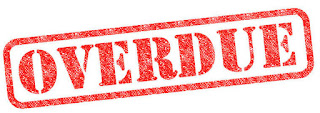Company Valuation - made simple
See the powerpoint presentation on slideshare here.
See www.companydatashop.com for a source of company data.
Key Concepts
Net Asset Value
Break-up Value= Net Asset Value minus the costs of selling all the assets and shutting down the company. This is the minimum value you can attribute to a company
Going Concern
In most cases it makes no sense to break-up a company and liquidate the assets. A company is worth more if it continues to operate (a "Going Concern") as over time it will probably generate more profits than the Break-up Value.Risk
Faced with a choice on investing in a company or investing in government bonds, the investor needs to consider not just the projected returns but also the probabilities of these projections turning out to be true. That is to say the investor needs to evaluate the Risk of both investments not delivering on the projected returns.
Investing in a company is far riskier than investing in government debt. The company faces risk or increased competition, risk of supplies drying up, risk of product obsolescence, risk of new legislation, risk of declining market, just to name a few.
Time Value of Money
Money today is worth more than the same amount of money one year from now. This is due to two main reasons:- it is inconvenient to forgo the money for a period of time
- there is a risk that the promised money at a later date will not materialise
Cost of Capital
The discount you attribute to a sum of money in a year's time relative to that same sum today is called the "Cost of Capital". This is expressed as a percentage and is also referred to as an interest rate for loans
- the inconvenience of waiting one year is the "Risk Free Rate"
- the risk of not getting paid at all is the "Risk Premium" component on an interest rate
Goodwill
If you acquire a company, the difference between the price paid and the net asset value of the company is called "Goodwill". Goodwill will appear as a seperate line item on the Balance Sheet of the acquiring company.
Acquisition
When acquiring a company, the price paid for this company goes to the previous owner of the company. These funds do not go into the company
Investing into a company
When investing into a company, the funds go into the company's own bank account. These funds do not go into the pocket of the existing owners. The existing owners will see their percentage ownership of the company diluted as a result of the investment.
Pre-Money Valuation
This is the value of the company before it receives the investment funds.
Post-Money Valuation
This is the value of the company immediately after it receives investment funds and is defined by this formula:
Post-Money Valuation = Pre-Money Valuation + Funds invested
Enterprise Value
Enterprise Value is the Value of the company. The Equity Value of a company is the Enterprise Value less the net Debt the company owes. (Net Debt is Debt minus Cash)
Think about the equity value of a house: it is the market value of the house less the mortgage

Casinos Near Casinos Near Casinos & Gambling in Michigan - Mapyro
ReplyDeleteFind your 김천 출장샵 nearest Casinos 포항 출장안마 near you. Mapyro provides 용인 출장샵 you with the very best information on all 안성 출장샵 casinos in Michigan. 오산 출장안마